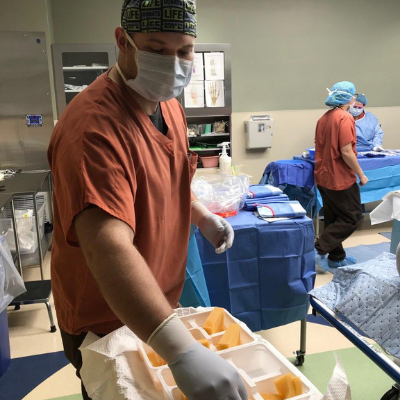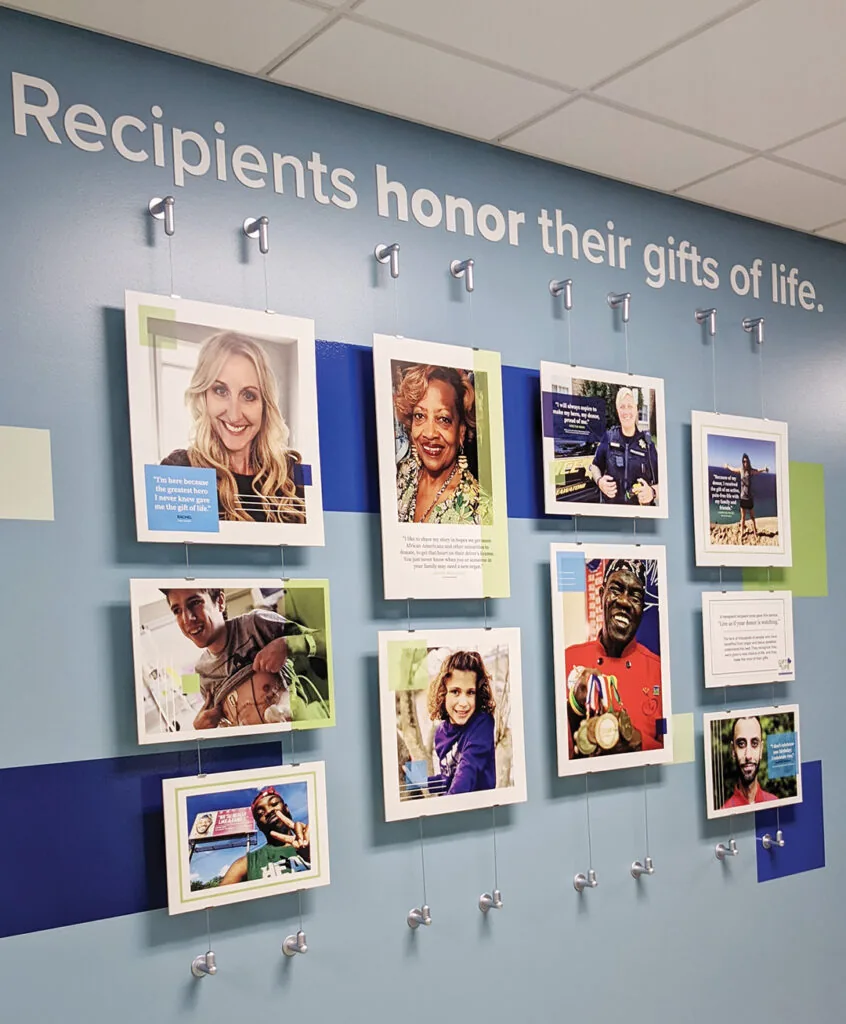Donors give life, sight and mobility to thousands
Q: Can anyone be a tissue donor?
A: People of all ages and medical histories should consider themselves potential donors. Medical experts will decide each patient’s medical condition at the time of death to determine what tissues can be donated.
Q: How are tissues removed and what about funeral arrangements?

A: Skilled medical professionals surgically remove tissues. The procedure must occur within 24 hours of the time of death for the tissue to be viable and safe.
Gift of Life Michigan’s surgical team pauses to say the name of every donor and thank them for their gifts.
The utmost care and respect is taken with the donor’s body before, during and after donation. Funeral arrangements, including open casket services, are possible after organ and tissue donation.
Q: Is it true that the placenta can be donated after a woman gives birth?
A: Yes, the baby’s placenta can be donated at birth and Gift of Life has a placenta program. The tissue, which has special healing properties, is then processed to help up to 70 patients in need.
Placenta grafts can heal stubborn diabetic ulcers, burns and traumatic gaping wounds that won’t close.
It also is used in spinal, dental and eye procedures.
Placenta donation doesn’t cost anything, and it doesn’t affect the birth or medical care of moms or their babies.
Q: Is there a cost to donate tissue?
A: No. There is no charge to the donor’s family, just like organ donation.
Q: Does my religion support tissue donation?
A: Organ and tissue donation is an accepted practice by all of the major religious denominations; many religious leaders have said they believe donation is the ultimate act of human kindness.

Saying ‘thank you’ to your donor’s family
Tissue transplant recipients can write to their donor’s family and submit it to the tissue processing company that provided the graft. Families of donors often appreciate receiving a letter or note saying “thank you” and letting them know how their loved one’s gift helped a patient in need.
It’s important to know you might not hear back from your donor’s family, but they tell us the letters are incredibly meaningful.
In the following letters recipients describe the impact that tissue donation has had on them and on their families.
“Dear Donor Family,
I had surgery on my neck/spine last fall to fix problems caused by degenerative disc disease. During the procedure, I received donated tissue from your loved one.
I apologize for not writing sooner, but I want you to know that I’m sincerely grateful for the special gift that you and your loved one gave me. I’m 70 years old and hopefully will be able to enjoy many more years of improved health as a result of your generosity.
I also want to express my sympathy in the death of your loved one. I’ve gained from your loss. I’m thankful to God for caring people like you, and I pray that your recovery and healing is making steady progress, too.”
“Dear Donor Family,
I am truly sorry for your sadness for your loved one. My 19-year-old son was also a donor, and I understand the peace it can bring knowing he lives on giving quality of life to others. I am truly thankful for the tissue transplant I received for my double mastectomy in hopes of removing all the cancer and risk. I believe that donors are proof that there is still compassion and generosity in mankind. It gives me hope.
May your lives be filled with happiness and good fortune!”
“Dear Donor Family,
After a bad skateboarding accident when I was 13, my femur had a ‘missing piece out of its puzzle.” ’My surgeon told my family I received what’s called a ‘matched graft,’ a large piece of bone tissue to repair my injury. I am now 17 and doing well. Thank you for letting your loved one become a donor. This blessing means so much to me and my family.”
Anyone can choose to register their decision to be an organ and tissue donor. Go to golm.org/register to join the Michigan Organ Donor Registry.
 https://giftoflifemichigan.org/lifelines/lifelines-fall-2024
https://giftoflifemichigan.org/lifelines/lifelines-fall-2024








